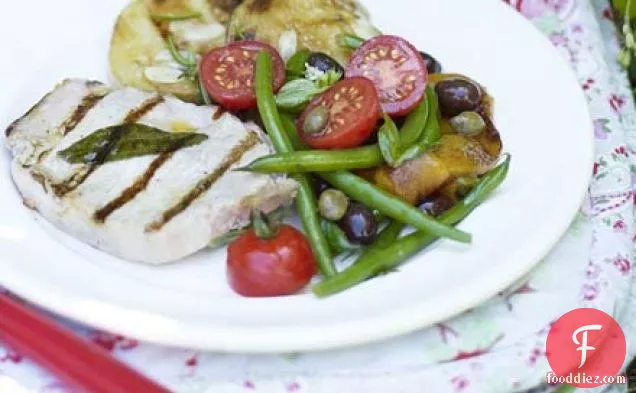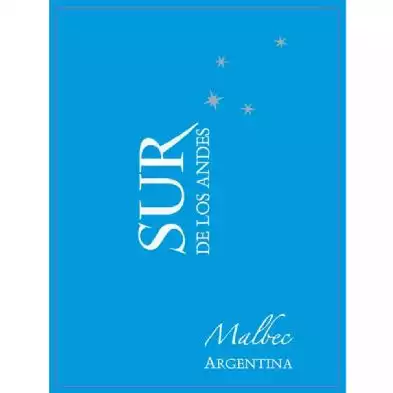Stuffed pork medallions

Stuffed pork medallions is It works well as a pretty expensive main course. From preparation to the plate, this recipe takes approximately 20 minutes. Users who liked this recipe also liked Fruitcake-Stuffed Pork Medallions, Pork Medallions, and Saucy Pork Medallions.
Instructions
1
To prepare the pork, lay a medallion on a board. Using the tip of a sharp knife, make a deep pocket in the side without cutting all the way through. Wiggle the knife so the pocket is bigger in the middle than it is at the opening. Stuff each pocket with a piece of cheese and a sage leaf. Thread a cocktail stick through the opening to close the pocket, then press another sage leaf on top of each medallion. Squeeze over juice from one of the lemon halves. The medallions can be prepared a day ahead and kept in the fridge.
Ingredients you will need![Cocktail]() Cocktail
Cocktail![Cheese]() Cheese
Cheese![Juice]() Juice
Juice![Lemon]() Lemon
Lemon![Pork]() Pork
Pork![Sage]() Sage
Sage
Equipment you will use![Cocktail Sticks]() Cocktail Sticks
Cocktail Sticks![Knife]() Knife
Knife
3
Drizzle medallions with a little oil and, starting with the sage-leaf side, barbecue medallions for 4 mins on each side, cooking them in batches if needed. While the medallions cook, barbecue the lemon halves, cut-side down, until charred, for squeezing over. Season and serve.
Ingredients you will need![Lemon]() Lemon
Lemon![Sage]() Sage
Sage![Cooking Oil]() Cooking Oil
Cooking Oil
Ingredients
Recommended wine: Malbec, Pinot Noir, Sangiovese
Malbec, Pinot Noir, and Sangiovese are my top picks for Pork Medallions. Pinot noir's light body is great for lean cuts, medium bodied sangiovese complement meaty sauces, stews, and other multi-ingredient dishes, and full-bodied tannic malbec pairs with fatty cuts and barbecue. The Sur de los Andes Malbec with a 4.9 out of 5 star rating seems like a good match. It costs about 10 dollars per bottle.

Sur de los Andes Malbec
A juicy Malbec with lively acidity backing the raspberry, blackberry and plum notes woven with soft tannins and spice-tinged finish. All the grapes are double sorted upon arrival to the winery. All fermentations take place naturally with native yeasts. Fermentation takes 20 days with 2 days of cold maceration, at temperatures between 24-27 Celsius to achieve the most complexity. The wine then goes through 100% Malolactic Fermentation and is aged in older oak casks.DifficultyNormal
Ready In20 m.
Servings8
Health Score44
DietsGluten FreePrimal
Magazine

Your Inner Chef with Taylor Swift's Top 3 Recipes from Her Beloved NYC Hangout

20 Mouthwatering Recipes You Need to Try Today!

Master the Art of Making Perfect Pancakes with This Foolproof Recipe

The Science Behind Red Wine: Its Surprising Health Benefits and Potential Risks

12 Wine Cocktails for a Sophisticated Twist

Sip, Swirl, and Celebrate: Toasting to National Wine Day on May 25th

National Drink Wine Day on February 18

Celebrating Souffle Day with Delectable Delights

Indulge in the Delightful Flavor of Oyster Soup on Its Special Day!

Celebrating World Nutella Day

How to Prepare a Peach

How To Prepare Avocados

5 Best Kid Friendly Recipes

9 Fig Recipes to Make the Most While They're Fresh

15 Delicious Pear Recipes You'll Make Again and Again

The 20 Best Pumpkin Recipes

30 Easy Halloween Recipes

Our 7 Best Mushroom Recipes

Top 12 Best Date Recipes

Traditional Mexican Foods

Your Inner Chef with Taylor Swift's Top 3 Recipes from Her Beloved NYC Hangout

20 Mouthwatering Recipes You Need to Try Today!

Sip, Swirl, and Celebrate: Toasting to National Wine Day on May 25th

National Drink Wine Day on February 18

Indulge in the Delightful Flavor of Oyster Soup on Its Special Day!

These Super Recipes for Your Football Party!

The Secrets Behind 3 Classic Comfort Food Recipes

Recipes to Spice Up Your February Menu

Top 20+ Must-Try Recipes Dominating February 2024








